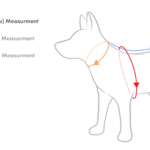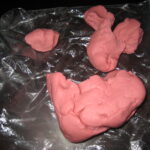Can Dogs Have Apple Juice
The Surprising Truth About Dogs and Apple Juice
If you’re a dog lover, chances are you’ve seen your furry friend beg for food or drink at some point. Maybe you’ve even shared some of your own snacks or drinks with them, like apple juice. But is giving apple juice to dogs safe and healthy? In this article, we’ll explore the question “can dogs have apple juice” from different angles and provide you with some expert guidance on what to do.
First things first: dogs don’t need apple juice. Unlike humans, who may enjoy drinking fruit juices as a source of vitamins and antioxidants, dogs can get all their essential nutrients from a balanced diet of meat, vegetables, and grains. Water is the best drink for dogs, as it helps regulate their body temperature, flush out toxins, and keep their organs functioning properly.
That being said, if you want to give your dog some apple juice as a treat or a supplement, there are a few things to consider. One is the sugar content of apple juice. Most commercial apple juices contain added sugars that can be harmful to dogs’ teeth and overall health. Excessive sugar consumption can lead to obesity, diabetes, dental decay, and other health problems in dogs.
Another thing to consider is the acidity of apple juice. Apples are naturally acidic fruits that can irritate dogs’ sensitive digestive systems if consumed in large amounts or too frequently. Acidic foods can cause vomiting, diarrhea, gas, bloating, and other digestive issues in dogs. Additionally, some dogs may be allergic or sensitive to apples or other fruits, which can cause skin rashes, itching, swelling, or breathing difficulties.
So can dogs have apple juice? The answer is yes, but with caution and moderation. If you want to give your dog some apple juice as an occasional treat or a supplement to their regular diet, make sure it’s fresh-pressed or homemade, without added sugars or preservatives. You can dilute the juice with water to make it less sweet and acidic, and give it to your dog in small amounts, preferably as part of a meal or snack.
If you notice any signs of discomfort or illness in your dog after giving them apple juice, such as vomiting, diarrhea, lethargy, or lack of appetite, stop immediately and consult your veterinarian. They can help diagnose the problem and provide you with appropriate treatment or advice.
In conclusion, dogs can have apple juice, but it’s not necessary or recommended for their health. If you want to treat your dog to some fruit juice, do it sparingly and wisely. Remember that dogs are different from humans in their nutritional needs and digestive capabilities, and what may be harmless or tasty for us may be harmful or unpleasant for them. As always, listen to your dog’s signals and preferences, and consult your vet if in doubt. Woof!



